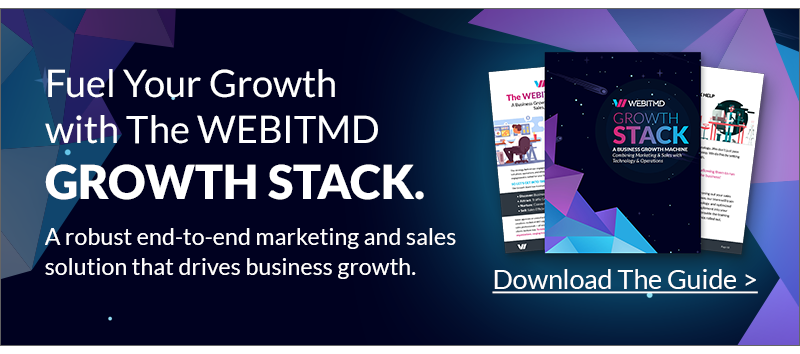If you’re new to Google Ads management, you may be unaware of the many mistakes beginners make when setting up campaigns. From keyword match types to campaign settings, there are a number of details you’ll want to give special attention to if you want to get the most out of your advertising dollars.
In this article, I’m going to share some insights on reviewing the search terms report to determine if your campaigns are serving the right ads to the right people at the right time, and ultimately helping to grow your business.
Why The Search Terms Report Matters
Let me start by explaining what the search terms report is. It’s an important part of Google Adwords management that allows us to see what people typed into the Google search bar right before they were served our ads. For example, if you were using the broad match modified keyword +cool +shoelaces, you may see terms like “cool new shoelaces,” or “where to buy cool shoelaces,” in the search terms report. This would show you how potential customers were searching on Google when they were served your ad. Familiarizing yourself with keyword match types and how they work within a Google Adwords campaign, will further help you understand this.
The search terms report is particularly important because it shows you when people are typing irrelevant terms into Google, but are being shown your ads anyway. This is critical because if someone is searching for “cool photos of the first shoelaces,” and your ads are being triggered, your wasting money on irrelevant impressions and clicks. If this type of thing is happening, the search terms report will help you to see it and what ad group it’s coming from. Depending on how your campaign is built out, people typing all kinds of wild entries into Google search could be triggering your ads.
To see if this is happening in your campaigns, you’ll want to navigate to the search terms report and see what results are coming up for your Search campaigns. To do this, go to your Search campaigns in the Google Ads Interface, then select Keywords, then Search Terms. You can set the date range for the report by using the tool in the top right hand corner of the screen. Then, you can scroll through the page to see which search terms have triggered your ads. You can sort by impressions, clicks, cost, etc. to get the most meaningful data.
If you see a lot of search terms that don’t reflect an intention relevant to your business goals, there are a number of changes you’ll want to make to improve the quality of traffic you’re getting from your campaigns.
Improving Ad Groups Based On Search Terms Report
The first thing you’ll want to look for is what ad group the irrelevant search terms are coming from. Is there one ad group that seems to be triggering the majority of the irrelevant search terms? If so, you’ll want to click on that ad group. This will take you to a report showing the search terms that ad group is triggering. If there are a bunch of irrelevant search terms in this ad group you may want to consider pausing this ad group, or reworking the keywords in this ad group.
Improving Keyword Match Types Based On Search Term Report
If you decide to rework the keywords in the ad groups yielding irrelevant search terms, you’ll want to take a look at the broad match keywords first. Generally speaking, I would only recommend using broad match modified, phrase, and exact match keywords. In the search terms report for any given ad group, you can see which match type is associated with each search term. You may see broad match modified keywords triggering irrelevant search terms. In this case, one option is to pause only the broad match modified keywords. Depending on the number of irrelevant search terms, this may be the way to go.
Improving Keyword Targeting Based On Search Terms Report
Another thing you’ll want to consider when reworking your keywords is the length of your key terms. Shorter terms like “shoelaces” are going to yield more low quality traffic than a long tail keyword like “buy shoelaces now online.” The latter phrase clearly reflects a high intent to buy and will drive higher quality traffic to your website.
If you’re seeing a lot of irrelevant search terms in your search terms report, you may want to consider this principle in relation to your campaign’s keyword targeting strategy. Changing short keywords with low intent to long tail keywords with high purchase intent is critical for successful Google Ad campaigns.
Adding Negative Keywords Based On Search Terms Report
Lastly, after examining ad groups, match types, and keywords in your campaigns, you’ll want to add any appropriate negative keywords. Negative keywords are keywords you give to Google in a list to prevent irrelevant search terms from triggering your ads. For example, if you’re selling cool shoelaces and you see “cool people don’t wear shoelaces” in your search terms report, you know the person who entered that phrase isn’t looking for cool shoelaces to buy. In this case you’d want to add “don’t” and “wear” as negative keywords to prevent your ads from showing for search terms like this in the future.
Search Terms Report in the Google Ads Interface
In conclusion, the search terms report in the Google Ads interface is a tremendously valuable resource to get feedback on what type of traffic your campaigns are generating. It can help to show you if your ads are getting to the right people at the right time, or if they’re being served to people searching for totally unrelated things. It is my hope that this article helps to give you more insight into how to use this powerful tool to improve your search campaigns, make the most of your advertising dollars, and connect with the people who are looking for your products and/or services. And, if you need additional help understanding how to use Google Ads to meet your business goals, don’t hesitate to reach out to the WEBITMD team about our Google Ad services. We appreciate you taking the time to learn and grow with us. Until next time, best wishes!
Paid Media is Part of our Growth Stack, Learn How it Propels Business Growth!
While many of our valued clients invest in paid media as a singular service, or even with SEO, it is a vital part of the WEBITMD Growth Stack. If you enjoyed this article we think you will love our FREE guide on the Growth Stack. Learn how a custom set of tools and strategies can help you hit your growth goals. No doubt you will have questions; give us a call and let’s see if your revenue goals align with the Growth Stack!



(1).jpg)









.jpg)



![5 Reports to Elevate Your HubSpot Sales Dashboard [+ Examples]](https://2363531.fs1.hubspotusercontent-na1.net/hub/2363531/hubfs/Imported_Blog_Media/6-winning-examples-of-a-hubspot-sales-dashboard-2.png?width=767&name=6-winning-examples-of-a-hubspot-sales-dashboard-2.png)

